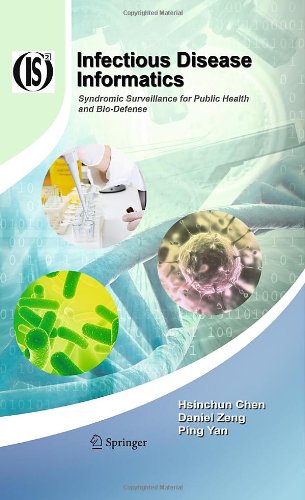

Most ebook files are in PDF format, so you can easily read them using various software such as Foxit Reader or directly on the Google Chrome browser.
Some ebook files are released by publishers in other formats such as .awz, .mobi, .epub, .fb2, etc. You may need to install specific software to read these formats on mobile/PC, such as Calibre.
Please read the tutorial at this link: https://ebookbell.com/faq
We offer FREE conversion to the popular formats you request; however, this may take some time. Therefore, right after payment, please email us, and we will try to provide the service as quickly as possible.
For some exceptional file formats or broken links (if any), please refrain from opening any disputes. Instead, email us first, and we will try to assist within a maximum of 6 hours.
EbookBell Team

4.4
102 reviewsComputer-based infectious disease surveillance systems are capable of real-time or near real-time detection of serious illnesses and potential bioterrorism agent exposures and represent a major step forward in disease surveillance. Infectious Disease Informatics: Syndromic Surveillance for Public Health and Bio-Defense is an in-depth monograph that analyzes and evaluates the outbreak modeling and detection capabilities of existing surveillance systems under a unified framework, and presents the first book-length coverage of the subject from an informatics-driven perspective.
Individual chapters consider the state of the art, including the facilitation of data collection, sharing and transmission; a focus on various outbreak detection methods; data visualization and information dissemination issues; and system assessment and other policy issues. Eight chapters then report on several real-world case studies, summarizing and comparing eight syndromic surveillance systems, including those that have been adopted by many public health agencies (e.g., RODS and BioSense). The book concludes with a discussion of critical issues and challenges, with a look to future directions.
This book is an excellent source of current information for researchers in public health and IT. Government public health officials and private-sector practitioners in both public health and IT will find the most up-to-date information available, and students from a variety of disciplines, including public health, biostatistics, information systems, computer science, and public administration and policy will get a comprehensive look at the concepts, techniques, and practices of syndromic surveillance.